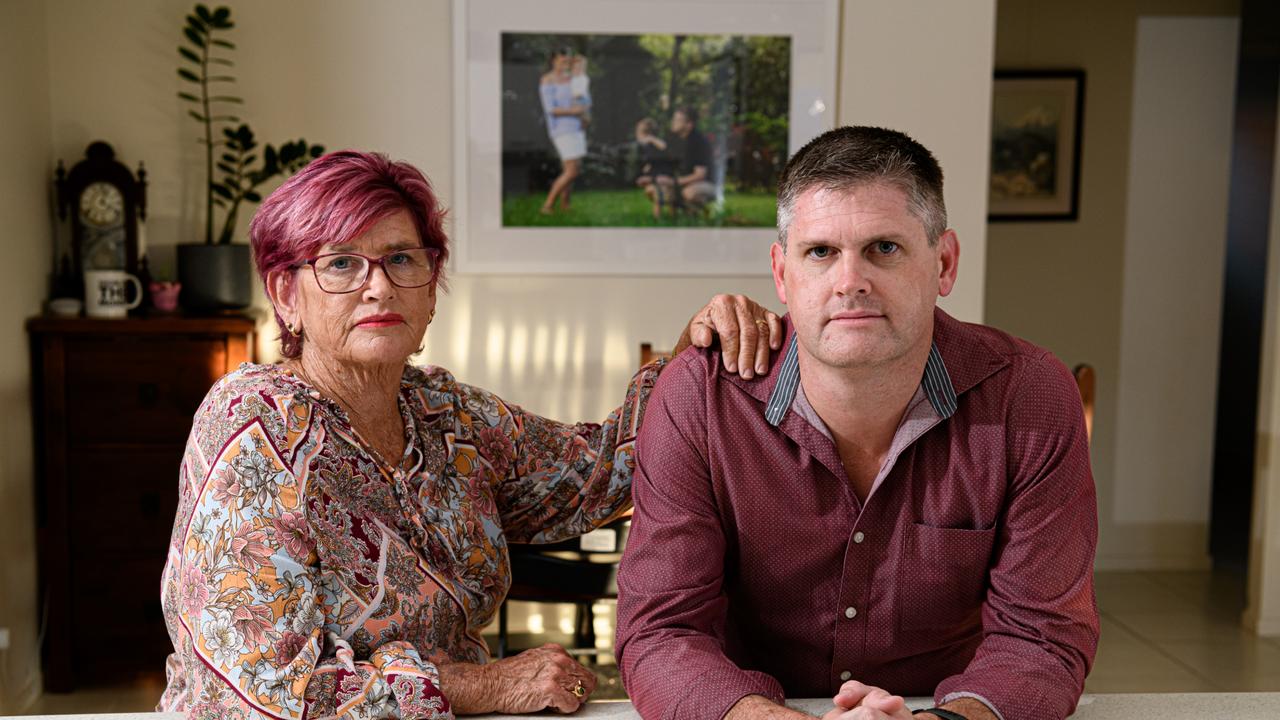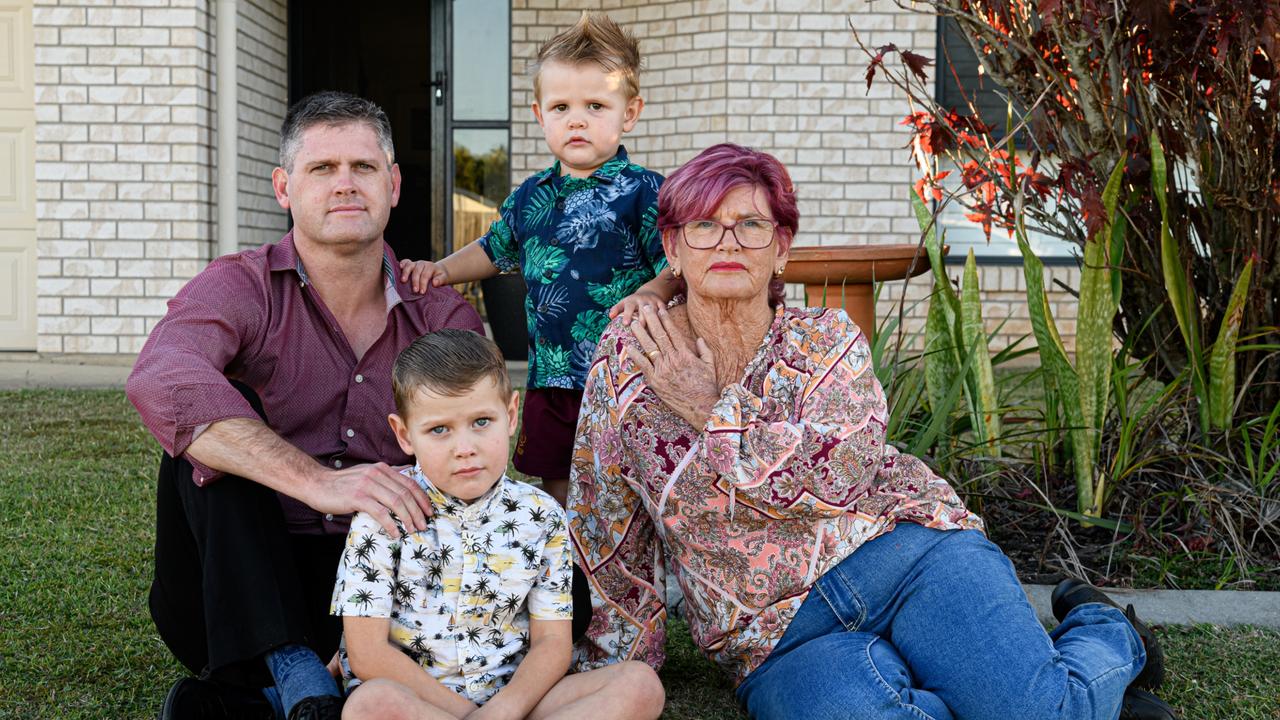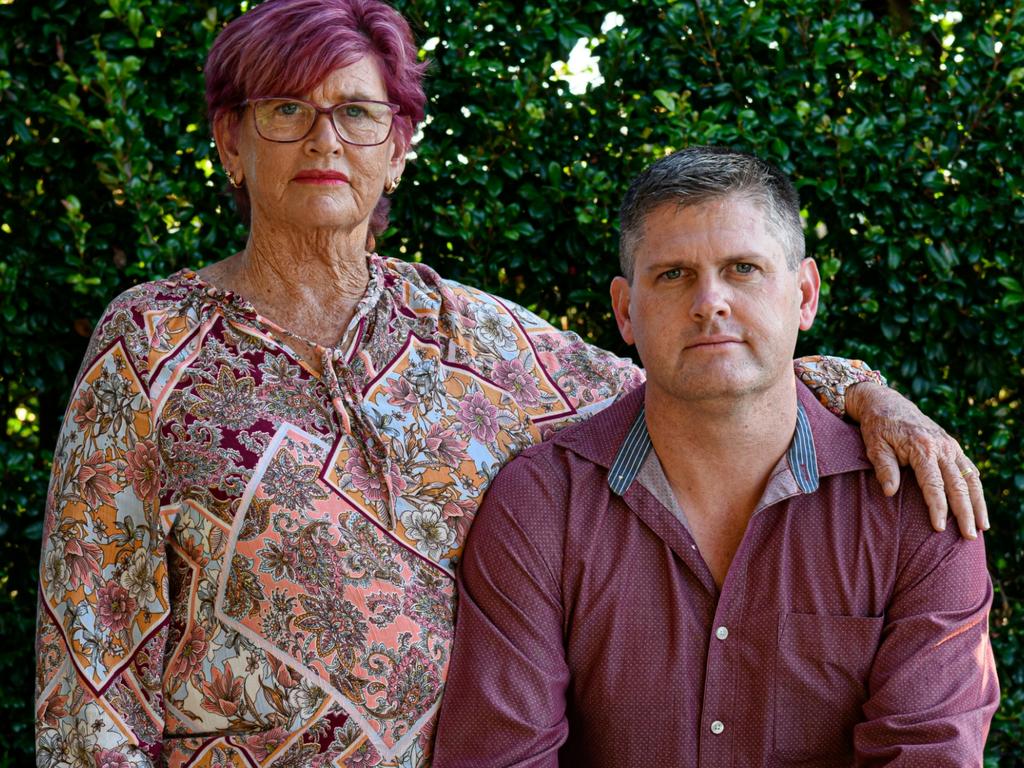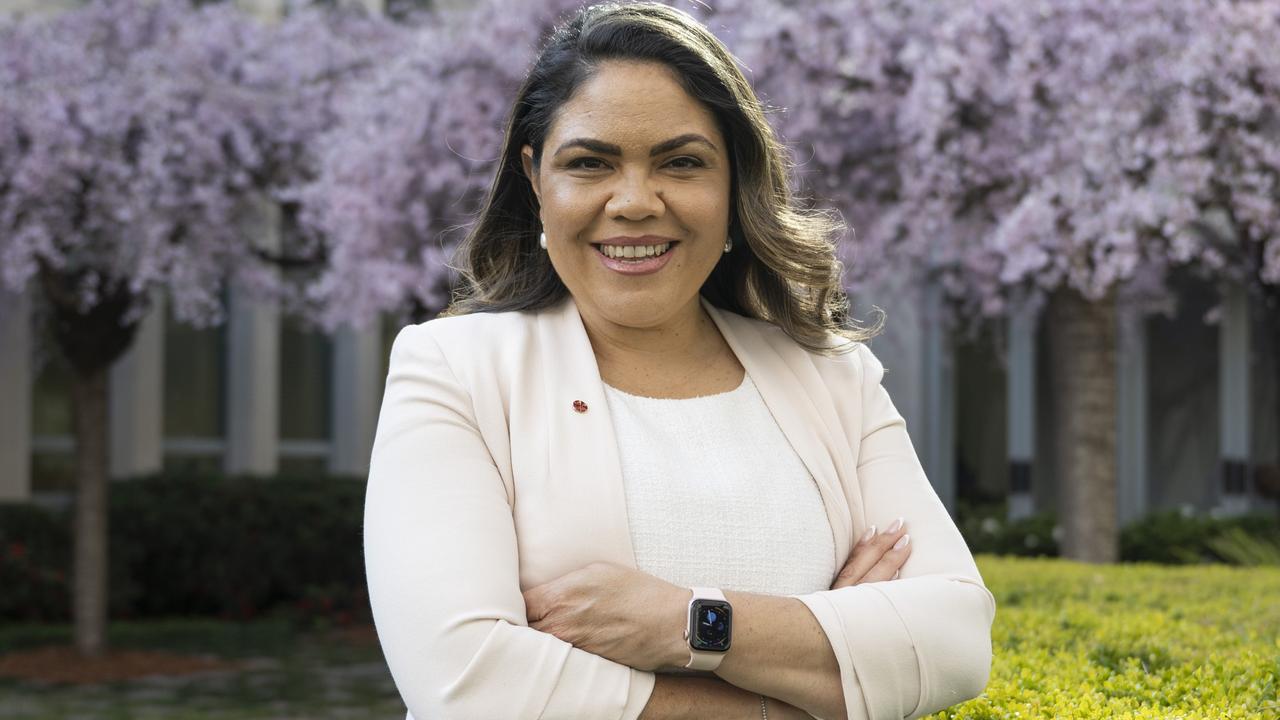Judy Honor’s genetic test after cancer penalised her son who faced insurance discrimination
Judy Honor would never have had a genetic test if she’d known it would have led to an insurance company discriminating against her son. Now they want the law changed to protect others.

Health
Don't miss out on the headlines from Health. Followed categories will be added to My News.
Exclusive: When Judy Honor was diagnosed with bowel cancer she never dreamt that taking part in genetic research meant her relatives would be financially penalised by life insurers.
The 64-year-old cattle farmer – who has survived three bouts of cancer – was hoping to help develop screening programs that could save the lives of her children and grandchildren.
Her participation helped progress testing for the Lynch Syndrome gene which predisposes people to bowel and other types of cancer.
However, as a result her relatives have been punished as multiple insurers now refuse to cover them.
When companies do offer insurance they want to charge a full premium while exempting the person from any payout if they develop cancer.
News Corp previously revealed a new study found one in three Australians who had life saving genetic testing are being denied life insurance, charged higher premiums or have conditions placed on their cover.
We identified people where the discrimination occurred even when they undertook surgery and regular screening to prevent the cancers they are at risk of.
“I honestly never thought it would affect my kids in that way. I wouldn’t have had it done if I’d have known,” Mrs Honor, frrom Bundaberg in Queensland, said.
Australia’s Disability Discrimination Act contains a specific exemption that exempts life insurers and allows them to discriminate against people on the basis of a genetic test.
The insurance industry claims to have a moratorium in place that allows people to get access to $500,000 worth of life insurance without disclosing genetic test results.
Mrs Honor’s son Dwayne is refusing to have a genetic test to find out if he carries cancer causing Lynch Syndrome genes because of the discrimination even though it could save his life.

When Mr Honor, who has never been diagnosed with cancer, asked his insurance broker to see if he could take out critical illness and trauma insurance to cover his mortgage if he became ill he was “infuriated” at the response.
The insurer said because he had not had a genetic test they did not know if he was susceptible to the risks faced by his mother or not.
They would provide cover but “our exclusion wording would include cancer, including carcinoma in situ, the brain gastrointestinal tract, hepatobiliary tract, kidneys, ovaries, pancreas, sebaceous glands, uterus, or any reasonably related condition or complication”.
“So they start with saying we don’t force anyone to take a test, then they go quickly into saying, but if you don’t get a test, we won’t cover you for cancer. And if you get a test, and you’re positive, we won’t cover you anyway. So what do you do?” Mr Honor said.
The discrimination poses a major hurdle for medical researchers because it is deterring people from taking part in work that could lead to major medical advances.
Australian Genomics uses advances in genomics to improve health care and its
managing director Tiffany Broughtwood said “we have had many cases of people delaying, or refusing to participate in genomic research, on the basis of these concerns”.

Krystal Barter who founded hereditary cancer group Pink Hope and is now CEO of Humanise Health said “we’re letting the financial industry control science and the future of health care in our country”.
Bowel Cancer Australia CEO Julien Wiggins said “we need to avoid creating a situation whereby a genetic test that has the potential to save a life by alerting a person or family member of the need for ongoing surveillance colonoscopy is declined for fear it will impact their ability to obtain insurance or they will experience insurance discrimination.”
The Honor family is fighting to change the law so Australia catches up with the UK, Europe and Canada which do not allow insurers to discriminate against people who have genetic testing.
The Australian Government is now reviewing the situation after News Corp reported on cases where Australians suffered insurance discrimination even when they undertook surgery and regular screening to prevent the cancers they are at risk of.
More Coverage
Originally published as Judy Honor’s genetic test after cancer penalised her son who faced insurance discrimination









